By Michel Robertson
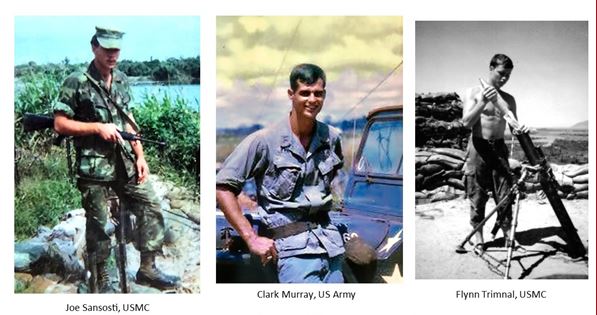
The photos in this article are of local Vietnam War veterans, many of whom you may know. See whether you’re able to recognize them!
Today, March 29th, is National Vietnam War Veterans Day, a day of remembrance established by the Vietnam War Veterans Recognition Act of 2017.
March 29 was chosen because on March 29, 1973, Military Assistance Command, Vietnam was disbanded and the last U.S. combat troops departed the Republic of Vietnam.
Those being honored include all U.S. Vietnam War Era veterans who served at any location between November 1, 1955 and May 15, 1975.
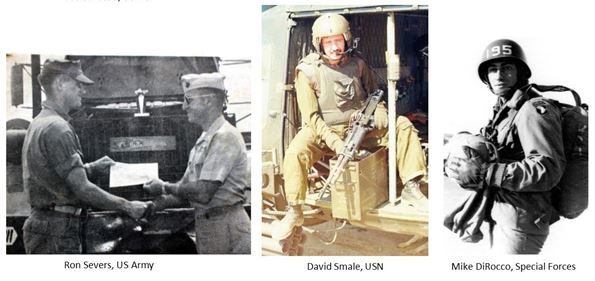
Recognition Delayed
The following dates of recognition from WWI to the Vietnam War underscore America’s long-delayed appreciation and acknowledgement of the service and sacrifices of Vietnam War veterans.
• Armistice Day, established in 1926, recognized the veterans of WWI seven years after the end of the war.
• Armistice Day was renamed Veterans Day in 1954 to include recognition of the veterans of Korea and WWII, nine years after the end of WWII.
• By contrast, Vietnam War veterans were officially recognized 61 years after the first known casualty of the war on June 8, 1956.
Lasting Effects
After enduring the horrors of war, Vietnam veterans came home to suffer indifference and sometimes contempt as well as serious medical “in-country” effects of toxins such as Agent Orange. Many never fully recovered either physically or emotionally. There is a plaque on the grounds of the Wall in Washington, D.C. which reads: “In memory of the men and women who served in the Vietnam War and later died as a result of their service. We honor and remember their sacrifice.”
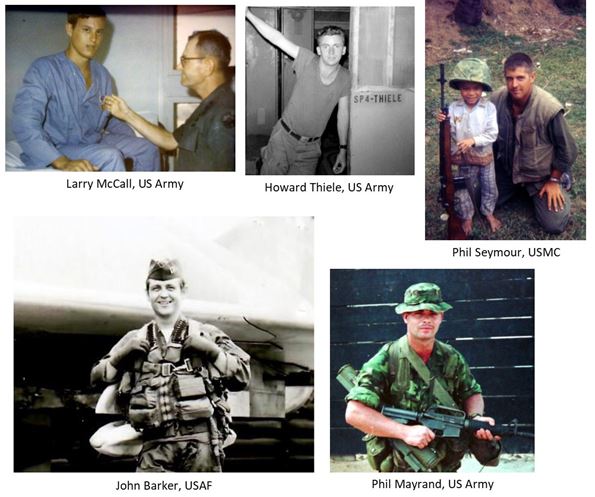
A Lesson to Remember
In my opinion, the most important lesson to take away from our country’s 20-year engagement in Southeast Asia is eloquently stated by Lt. General John M. Brown, III (U.S. Army retired) in his compelling foreword to the book, Welcome Home, Brother: Memoirs of Vietnam War Veterans. It reads as follows:
“They stepped forward. Like their fathers, mothers, grandparents, uncles, big brothers and neighbors, they stepped forward to serve and protect their country. They did not pick their war; that was done by the nation’s leaders and circumstance. Some volunteered, some were drafted but they all served and did their duty. Their stories are real, coming from deep and often raw memories of their brothers and sisters in uniform, their fears and their pride. They remember friends, losses and triumphs. They remember family support, sacrifice and the terrible toll on Americans and Vietnamese. Their memories and stories are powerful and historic treasures.
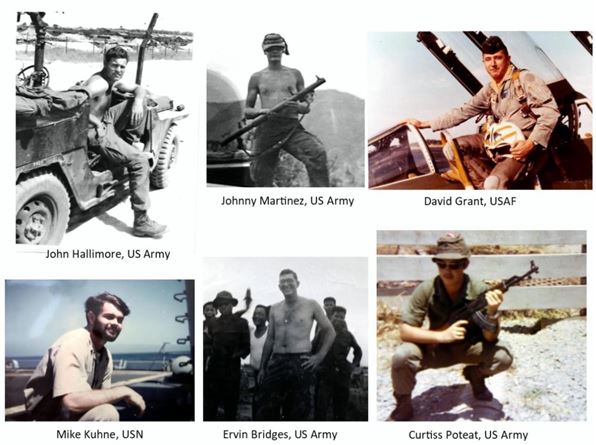
“They remember being surprised at the anger of many Americans turned toward them as the war become increasingly unpopular. Rather than political and military leaders, they became the focal point of antiwar sentiment across the nation. For the first time in our history, American citizens blamed our Soldiers for the war. We The People failed our warriors. Some actively attacked our Soldiers as they came home. Many stood by and let it happen. We lessened our national character at the expense of those who served.
“Their strength in the face of these unwarranted attacks, taught the nation a lesson that is also part of their service to country. A lesson we must never forget and pass to our children. In a democracy, it is OK to hate a war and still respect the Soldiers sent into battle. We should share pride in these veterans. Bless them.”
Today, find Vietnam War Era veterans. Thank them. Tell them, “Welcome Home.” It’s never too late.
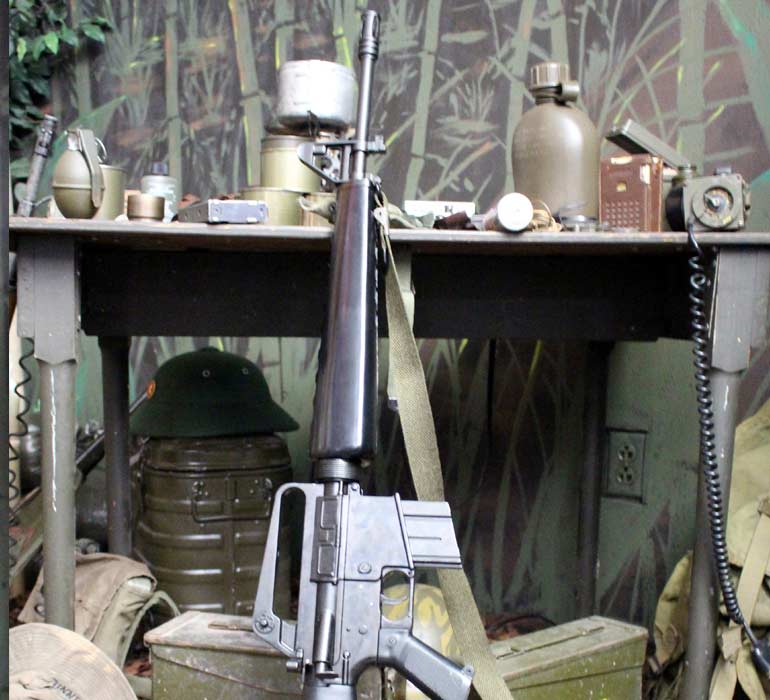
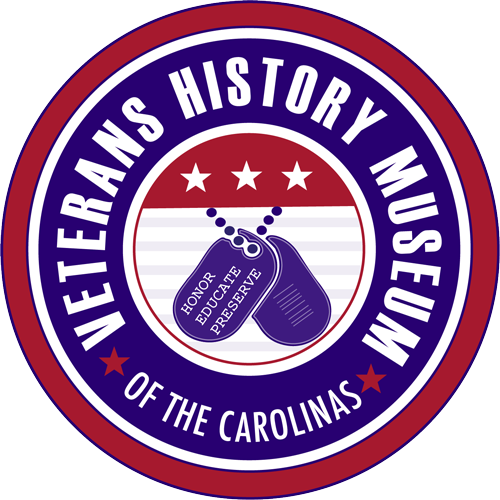
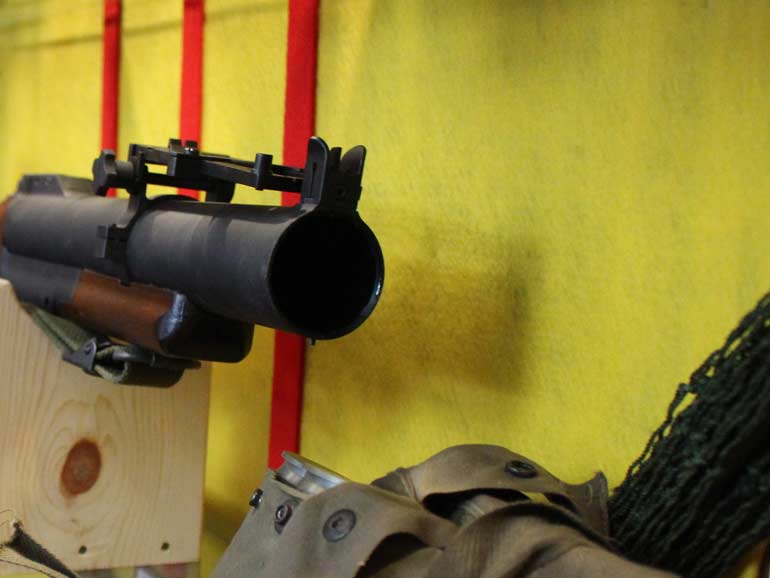
Thank you Michel.
It’s my honor to recognize and thank Vietnam veterans!
Coming into San Francisco after a year as a Grunt was memorable, I felt safe. I was pleased to be home. I was not ready for the antagonism and disdain ever present. Just as so many cannot fully understand my time in the infantry walking in minefields, cradling dead friends as their young lives bleed away they also cannot understand or even feel an honest empathy as they might sincerely try to do. It is pity that comes across and that is at once regrettable and demeaning.
Dear Joe, I am Sargent “Buck’s” (Larry Butgereit) sister. I want to send you a plague I received several years ago in Michigan. I want the plague to be in the possession of someone who knew and respected him. Will you please respond to this, my effort to be in contact with you? It will mean so much to me. Thank you. Alice Butgereit Flood.
Dear Aunt Alice, Joe and I have not met but have communicated often for several years. I have fond memories of Uncle Larry and Joe and others who served with him have been kind enough to share their stories. Everyone of them deserve our gratitude and respect. Uncle Larry is not forgotten.